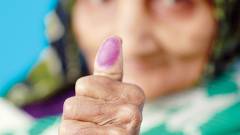Is it not high time to start over? To hold fresh elections in order to give fair opportunities?
Why can’t we refrain from talking about the national polls? It is not nonsensical to demand a ballot that is reasonably acceptable to all. And no one denies that the absence of participatory elections is at the centre of all the crises in Bangladesh today. Otherwise, why don’t the ruling party leaders stop assuring themselves that Sheikh Hasina’s is a government mandated for five years?
The situation in the aftermath of the January 5 polls can’t be considered stable. It’s rather an uncomfortable status quo, which has constantly been threatened to be broken. You’ve restored order, your Excellency, but couldn’t earn the confidence of any of the stakeholders, save for those seeking corrupt gains from state power.
Investors are waiting for assured stability. The domestic job market is not widening. Dhaka can’t unlock the potential of overseas employment. Tourists are eluding Bangladesh during the winter. The education and financial sectors are at stake, and so are the prospects of Bangladeshi youths.
The prime minister’s adviser, HT Imam, has given proof of the quality of governance by assuring Chhatra League activists of being favoured in the viva voce section of the civil service examinations, given the role “Awami recruits” played in the manipulated voting on January 5. We have to see some shameless faces at the helm of public institutions, who are living in an El Dorado of their own.
They are disturbed by criticism, not by acts of crime or scams in banks and the share market. These people, who have employed all efforts to secure power until 2041, can’t focus on the small things – declining sales in the market, production losses in industries, or extortion by their “golden boys.”
If we sum up many such realities, there is only one conclusion – the loss of hope of a resilient nation. A political system devoid of democratic latitude can’t provide the people with the incentive to become optimistic about their future. Axiomatically, the years of undemocratic rule have been the darkest era for Bangladesh – economically, culturally, socially, and politically.
Challenged by rivals and hated by the people, the AL administration can offer nothing better than corruption at all levels. It’s an opportune moment for the evils to shine. The majority, not being party to the corrupt system, is bound to suffer.
Mindful of their “high-voltage” performance, the rulers are getting increasingly scared of public wrath and doggedly unwilling to relinquish power. Awami League, as a party, is lost to the police, and BNP and other opposition forces are reduced to seminar rooms.
It’s a situation which can be defined by a complete isolation of the regime, pent-up anger among political elements, and wholesale frustration of the masses. It all tells us the story of a political impasse that is leaving dampening effects on every other sector.
When we don’t have an elected parliament, influential leaders of the two sides of the political divide compete with abusive words, and the governing party is the undisputed champion there. Away from home, the teasing of this government by foreign players for a flawed ballot, and the representation of the country by an anti-people regime, has bowed our heads in shame for hardly any fault of our own as citizens.
So, is it not high time to start over? To hold fresh elections in order to give fair opportunities to people of a few generations, especially the fresh blood, to come to the electoral race and forge a social contract for bringing qualitative change in democratic politics?
However, Bangladeshis can’t be so naïve to believe that premier Hasina’s government would volunteer to hold a snap poll. As a clever politician, she, speaking at a recent press conference, gave a broad hint at mid-term elections as an option, should her administration be forced to do so, despite her outright rejection of any dialogue with BNP.
Under the circumstances, if AL’s ego wins, democracy loses. If BNP defeats the AL as the ruling party, the victory may not be “of the people” unless there is a greater national dialogue to accommodate demands of all stakeholders. Only a participatory ballot, following a consensus on future political order, can provide an equitable platform for current leaders, sidelined politicians, and new entrants.
If such an arrangement can’t be agreed upon shortly, it is AL that will be the most endangered party. In the case of a mid-term election, however, it will enjoy the space to manoeuvre politically and stay in the electoral race all over the country and surely in the next parliament.
As BNP has a compulsion to secure an election for political revival, the party will presumably play all-in to unseat the AL regime. Even if BNP is subdued by witch-hunting, AL will not be safe either. The rise of an extremist force that AL often refers to, to earn international sympathy, may be inevitable to oust a fascist party from power, as AL proved its autocratic nature in 1975 and 2014.
Source: Dhaka Tribune










